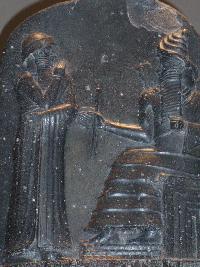| Pages in topic: < [1 2 3 4 5] > | Off topic: Happy International Translation Day!! Thread poster: José Luis Villanueva-Senchuk (X)
|
|---|
| You are so right! | Oct 1, 2003 |
I just absolutely *love* THIS clever reply of yours. It made me laugh! Thanks! Thanks!
Thierry LOTTE wrote:
Since about 10 years there is a very strange marketing trend to create totally artificial \"XXX Days\" without any serious reasons.
Soon or later, I am confident that we will have some \"Victorian Strumpet day\", \"Siamese Cats Day\" (I sustain this one), \"PWB Day\",\"George Orwell\'s Day\", \"Lousy Jokers\'Day\" and so on...
Now I wish I would some kind of \" Tolerance Day\" where nobody should be afraid by its innocent postings on this nice site.
Irresponsably yours,
Thierry
| | | | | Happy Translators Day to all :-) | Oct 1, 2003 |
-Tolerance is when you wish a happy translators day to all translators of the world whatever your or their religion/faith is.
-Tolerance is also when you consider it as a non international translators day.
-The question is would have St Jerome become saint or as famous as he is if he didn't translated the Bible? In that case would that make him a bad translator or does it mean that before him none was as good as he was as far as the translation is concerned?
Now it is ob... See more -Tolerance is when you wish a happy translators day to all translators of the world whatever your or their religion/faith is.
-Tolerance is also when you consider it as a non international translators day.
-The question is would have St Jerome become saint or as famous as he is if he didn't translated the Bible? In that case would that make him a bad translator or does it mean that before him none was as good as he was as far as the translation is concerned?
Now it is obvious that St Jerome is used as a reference because of the reason we all know. But this reason should not give right neither to impose him as the one and only representative of all translators in the world, nor give right to say that he is not one of our representatives. In other words we, as professional translators and linguists regardless to our faith/religion, should not be as narrow minded as to consider him as THE reference, nor to claim that he is NOT a reference at all. We always should bear in mind that we have many references, representing us all, which makes us richer.
There is no doubt that St Jerome's day is a translator's day for christians all around the world, but should that stop us from wishing and commemorating it even if we are not christians?
It is as if someone wishes you a Merry Christmas and you don't wanna reply because you are not a christian, which is of course ridiculous. Tolerance has no limits, so all messages of peace, love, culture, and so on, should be accepted and replied equally. Gathering those simple things would prevent spreading of prejudice, hypocrisy and hate. Is it so difficult? Are we so deeply brainwashed? It's time to wake up.
I admire this site because of freedom of speech and great tolerance and banning political debates and issues which would have led us to neverending quarrels.
Salaam/Shalom/Peace and happy translators day to all!
Bosnian forum moderator
Said aka SARAJ ▲ Collapse
| | | | José Luis Villanueva-Senchuk (X) 
Argentina
Local time: 09:07
English to Spanish
+ ...
TOPIC STARTER | Interesting article... | Oct 1, 2003 |
Thierry LOTTE wrote: Claudia Iglesias wrote :
I read somewhere that the first interpreter was "La malinche", the Aztec woman who fell in love with Hernán Cortés, in Mexico.
First, I don't think it's true, because before that time there had been many interpreters elsewhere, but maybe she was the first woman.
`
If you are interested by “ La malinche” please kindly read the following novel : “AZTECA” – by Garry Jennings
After this great suggestion, allow me to recommend the following: http://language.home.sprynet.com/trandex/hermes.htm
You will find some gems in there...
"Three-Sentence Précis of Paper:
The ancient Greek word for interpreter/translator is Hermêneus, directly related to the name of the god Hermes.
Its many further meanings—mediator, go-between, deal-broker, marriage-broker—open up a window onto the work of interpreters during prehistory.
And the knowledge that we gain of this prehistory thanks to these meanings provides an additional window opening onto the origins of language itself."
"Abstract:
The case for Hermes as the god of translators and interpreters is a clear and compelling one. While some European translators have campaigned for St. Jerome as the patron saint of translation, there are probably some good reasons, with all due respect to the translator of the Vulgate, for having a god of translation rather than a saint. First of all, in global terms Asians and others outside of Europe are more likely to respond to ancient Greek traditions than to Christian ones (as they do when they attend the Olympic Games), since similar "gods-of-the-road" are revered in Japanese, Chinese, and even Mayan culture. Furthermore, the circumstances surrounding the "divinity" of Hermes may open the way to some surprising new insights into translation history and broaden the scope of Translation Studies as a whole. Hermes was par excellence the god of interpreting, of quick-wittedness, of wily improvisation, and translation, like writing itself, was a later development. Several current schools of Linguistics have their grounding in ancient Greek works on grammar, but as we shall see, the Greeks themselves, following Plato, looked to two authorities where language was concerned: grammarians and interpreters. While grammarians have until recently rooted their quest for rules and their sometimes dubious claims of universality in the structure of a single language, interpreters have necessarily always been concerned with at least two or more languages and the frequently jagged interface between them. And as will be explained, the tale of Hermes can also open up unexpected vistas onto the prehistory of interpreting, an area usually regarded as beyond our study, and perhaps even help to unravel the mystery of the origins of language itself.
It should be added that Hermes of course also acted as divine messenger, presided over commerce and travel (both clearly linked to translation), and was the tutelary god of all the arts and crafts, including magic and matrimonial match-making. We may perhaps forgive him if he was also the god of thieves and deceit, since this function may spring somewhat naturally from some of his other attributes."
| | | | | A Monument To Intolerance | Oct 1, 2003 |
- that's what, alas, the first page of this ProZ.com forum thread will remain forever, for all future visitors to see:
enthusiastic comments by several ProZ members:
"This is soul-stirring! Many thanks, José!
Awesome, dear Jose
Thank you very much!
This is soul-stirring! Many thanks, José!
Nice done!
Thank you, José! It is really nice done!
I start feeling great- it is my day,too!"
- - but the ... See more - that's what, alas, the first page of this ProZ.com forum thread will remain forever, for all future visitors to see:
enthusiastic comments by several ProZ members:
"This is soul-stirring! Many thanks, José!
Awesome, dear Jose
Thank you very much!
This is soul-stirring! Many thanks, José!
Nice done!
Thank you, José! It is really nice done!
I start feeling great- it is my day,too!"
- - but the first posting they are all so enthusiastic about is empty, deleted because several other ProZ members felt offended by a photo showing a translator and the story of his life.
I know that ProZ policy says comments other members feel offended by have to be removed (and I know ProZ didn't censure it but they asked José to retire it and he did).
But is Tolerance not a value to defend? The absurd first page of this thread looks like a smoking battlefield after a religious battle on ProZ.com. If José's posting remained there, this bitter impression would disappear.
[Edited at 2003-10-01 12:29] ▲ Collapse
| | |
|
|
|
José Luis Villanueva-Senchuk (X) 
Argentina
Local time: 09:07
English to Spanish
+ ...
TOPIC STARTER | Let peace and understanding "rule" again... | Oct 1, 2003 |
Martin Schmurr wrote:
I know that ProZ policy says comments other members feel offended by have to be removed (and I know ProZ didn't censure it but they asked José to retire it and he did).
[Edited at 2003-10-01 12:17]
Dear Martin,
Allow me to say it one last time...
ProZ.com did not ask me to remove the posting.
The forum moderator thought it would be better if I removed the email&picture "in fairness to all members". The moderator had been contacted by some members and asked to remove the posting. She thought I should remove the email&picture and so I did. Rules are rules.
Let us all leave it here and let us work together to make this a better site. to make this a better site.
Take good care and have an outstanding day!!
JL
| | | | two2tango 
Argentina
Local time: 09:07
Member
English to Spanish
+ ...
| Not against the rules | Oct 1, 2003 |
Martin Schmurr wrote:
I know that ProZ policy says comments other members feel offended by have to be removed (and I know ProZ didn't censure it but they asked José to retire it and he did).
But is Tolerance not a value to defend? The absurd first page of this thread appears like a smoking battlefield after a religious battle on ProZ.com. If José's posting remained there, this bitter impression would disappear.
José Luis' posting was not against the rules of the site, and ProZ' founder himself did not consider it improper.
Those who had other images in mind to represent us translators of the wide world should include them in their postings, so as to share visions and broaden our criteria.
The first page serves as a reminder of the price we all pay when tolerance is left aside. We should learn and move on...
Oecumenically yours,
Enrique
[Edited at 2003-10-01 12:42]
| | | | lien
Netherlands
Local time: 14:07
English to French
+ ...
| The intention was laudable | Oct 2, 2003 |
Said Kaljanac a.k.a. SARAJ wrote: In other words we, as professional translators and linguists regardless to our faith/religion, should not be as narrow minded as to consider him as THE reference, nor to claim that he is NOT a reference at all. We always should bear in mind that we have many references, representing us all, which makes us richer. Bosnian forum moderator Said aka SARAJ 
but why to assume that st jerome represents the translators ? Yes I know the answer.
It was a blooper.
Next year, let's celebrate with the Rosetta Stone, much more to the point to celebrate a translators day.
This saie, I agree with Thierry Lotte.
| | | | DGK T-I 
United Kingdom
Local time: 13:07
Georgian to English
+ ...
| What excellent suggestions for symbols & inspirations :-) | Oct 2, 2003 |
(although I'm going to remember Jerome along with them - at least the translator Jerome in the account that Jose presented so interestingly. No one suggested in the original posting that Jerome was the only possible symbol to represent translators, just that he had been adopted as one by some people, and was inspiring from a translating point of view. We all know that there are a multitude of other inspirations from diverse countries, traditions, of all religions and none, cultures and times - ... See more (although I'm going to remember Jerome along with them - at least the translator Jerome in the account that Jose presented so interestingly. No one suggested in the original posting that Jerome was the only possible symbol to represent translators, just that he had been adopted as one by some people, and was inspiring from a translating point of view. We all know that there are a multitude of other inspirations from diverse countries, traditions, of all religions and none, cultures and times - it is so obvious, that the poster of the thread didn't need to say it.)
José Luis Villanueva-Senchuk wrote: Thierry LOTTE wrote: Claudia Iglesias wrote :
I read somewhere that the first interpreter was "La malinche", the Aztec woman who fell in love with Hernán Cortés, in Mexico.
First, I don't think it's true, because before that time there had been many interpreters elsewhere, but maybe she was the first woman.
`
If you are interested by “ La malinche” please kindly read the following novel : “AZTECA” – by Garry Jennings After this great suggestion, allow me to recommend the following: http://language.home.sprynet.com/trandex/hermes.htm You will find some gems in there... "Three-Sentence Précis of Paper:
The ancient Greek word for interpreter/translator is Hermêneus, directly related to the name of the god Hermes.
Its many further meanings—mediator, go-between, deal-broker, marriage-broker—open up a window onto the work of interpreters during prehistory.
And the knowledge that we gain of this prehistory thanks to these meanings provides an additional window opening onto the origins of language itself."
"Abstract:
The case for Hermes as the god of translators and interpreters is a clear and compelling one. While some European translators have campaigned for St. Jerome as the patron saint of translation, there are probably some good reasons, with all due respect to the translator of the Vulgate, for having a god of translation rather than a saint. First of all, in global terms Asians and others outside of Europe are more likely to respond to ancient Greek traditions than to Christian ones (as they do when they attend the Olympic Games), since similar "gods-of-the-road" are revered in Japanese, Chinese, and even Mayan culture. Furthermore, the circumstances surrounding the "divinity" of Hermes may open the way to some surprising new insights into translation history and broaden the scope of Translation Studies as a whole. Hermes was par excellence the god of interpreting, of quick-wittedness, of wily improvisation, and translation, like writing itself, was a later development. Several current schools of Linguistics have their grounding in ancient Greek works on grammar, but as we shall see, the Greeks themselves, following Plato, looked to two authorities where language was concerned: grammarians and interpreters. While grammarians have until recently rooted their quest for rules and their sometimes dubious claims of universality in the structure of a single language, interpreters have necessarily always been concerned with at least two or more languages and the frequently jagged interface between them. And as will be explained, the tale of Hermes can also open up unexpected vistas onto the prehistory of interpreting, an area usually regarded as beyond our study, and perhaps even help to unravel the mystery of the origins of language itself.
It should be added that Hermes of course also acted as divine messenger, presided over commerce and travel (both clearly linked to translation), and was the tutelary god of all the arts and crafts, including magic and matrimonial match-making. We may perhaps forgive him if he was also the god of thieves and deceit, since this function may spring somewhat naturally from some of his other attributes."
[Edited at 2003-10-03 14:25] ▲ Collapse
| | |
|
|
|
Ouadoud 
Local time: 15:07
English to Arabic
+ ...
| Mythology vs etymology | Oct 2, 2003 |
José Luis Villanueva-Senchuk wrote:
...
The ancient Greek word for interpreter/translator is Hermêneus, directly related to the name of the god Hermes.
Its many further meanings—mediator, go-between, deal-broker, marriage-broker—open up a window onto the work of interpreters during prehistory.
And the knowledge that we gain of this prehistory thanks to these meanings provides an additional window opening onto the origins of language itself."
"Abstract:
The case for Hermes as the god of translators and interpreters is a clear and compelling one... ."
Dear José,
I read with great interest your post and appreciated it.
You focused on the Greek appellation of the Interpreter/Translator and the related pagan god Hermes.
I understand perfectly the fascination greek mythology may have on audiences (I used to give conferences about greek and roman mythology, talking about mosaics), but let's go deeper and further (I mean before Greeks) and have a look at the etymology:
http://www.bartleby.com/61/77/T0047700.html
This definition of ... The American Heritage® Dictionary of the English Language: Fourth Edition. 2000... is half satisfying to me:
I agree with the aramaic and hebraic origin, but the arabic "Tarjem" was lost somewhere in the thousands pages of this Great Reference (i.e .The American Heritage®).
No use to remind that Aramaic, Hebrew and Arabic are of the same semitic origin.
You can understand then that Interpreter/Translator has a semitic etymological root.
The Greek Hermes is another appellation, and as far as I know, we translators are not called Hermesators (even bearing in mind the sympathetic aspect of the god of the thieves ). ).
And as Bob Dylan explains philosophically in one of his songs:
"Man gave name to all the animals,
In the beginning, in the beginning.
Man gave names to all the animals,
In the beginning, a long time ago.."
Salaam to one and all
Abdelouadoud.
| | | | | No Rosetta Stone, please! | Oct 3, 2003 |
lien wrote:
Next year, let's celebrate with the Rosetta Stone,
Please, no Rosetta Stone which is currently a bone of contention:
"...Egypt wants the Rosetta Stone, a 2000-year-old relic and one of the British Museum's most important exhibits, returned to Cairo... the Egyptian Government is calling for the stone's return and threatening to pursue its claim aggressively if the British Museum does not agree to give it back voluntarily..."
http://www.theage.com.au/articles/2003/07/20/1058639658937.html
Ewa
| | | | lien
Netherlands
Local time: 14:07
English to French
+ ...
laca wrote:
"...Egypt wants the Rosetta Stone, a 2000-year-old relic and one of the British Museum's most important exhibits, returned to Cairo... the Egyptian Government is calling for the stone's return and threatening to pursue its claim aggressively if the British Museum does not agree to give it back voluntarily..."
| | | | Parrot 
Spain
Local time: 14:07
Spanish to English
+ ...
José Luis Villanueva-Senchuk wrote:
The case for Hermes as the god of translators and interpreters is a clear and compelling one. While some European translators have campaigned for St. Jerome as the patron saint of translation, there are probably some good reasons, with all due respect to the translator of the Vulgate, for having a god of translation rather than a saint. First of all, in global terms Asians and others outside of Europe are more likely to respond to ancient Greek traditions than to Christian ones (as they do when they attend the Olympic Games), since similar "gods-of-the-road" are revered in Japanese, Chinese, and even Mayan culture. Furthermore, the circumstances surrounding the "divinity" of Hermes may open the way to some surprising new insights into translation history and broaden the scope of Translation Studies as a whole. Hermes was par excellence the god of interpreting, of quick-wittedness, of wily improvisation, and translation, like writing itself, was a later development. Several current schools of Linguistics have their grounding in ancient Greek works on grammar, but as we shall see, the Greeks themselves, following Plato, looked to two authorities where language was concerned: grammarians and interpreters. While grammarians have until recently rooted their quest for rules and their sometimes dubious claims of universality in the structure of a single language, interpreters have necessarily always been concerned with at least two or more languages and the frequently jagged interface between them. And as will be explained, the tale of Hermes can also open up unexpected vistas onto the prehistory of interpreting, an area usually regarded as beyond our study, and perhaps even help to unravel the mystery of the origins of language itself.
It should be added that Hermes of course also acted as divine messenger, presided over commerce and travel (both clearly linked to translation), and was the tutelary god of all the arts and crafts...."
Egyptian mythology equates this personality to Thoth, who invented the calendar and letters (and was thus said to have weakened the mind of man, making his memory dependent on systems of recording).
The closest Indian personality, however, is Ganesh, the god with the elephant's head, who is the patron of intellectual activity (read: literature, mathematics, sciences). The son of Shiva and Parvati, how he lost his original head has many versions, but he is depicted as a model of filial piety: some say he lost his head defending his mother, to which they add that he lost one tusk defending his father. In his statues, he holds that tusk in his right hand, because it is also said that he used it to write down the Mahabharata when Vyasa the poet recited it for the first time.
So, schoolchildren love him. I once saw a little girl embracing his fat-bellied figure in a temple, as an Indian friend explained, "she probably has exams coming up." His image is also all over the accounting departments of the private business sector, since he has a reputation as a bringer of luck, prosperity and wealth. He is the lord of Shiva's gunas or demons, (read: troublemakers), the "remover of obstacles" (and also the one that puts them there).
Namaste. 
| | |
|
|
|
Bill Greendyk 
United States
Local time: 08:07
Member (2002)
Spanish to English
+ ...
| All´s well that ends well! | Oct 3, 2003 |
Parrot wrote: José Luis Villanueva-Senchuk wrote:
The case for Hermes as the god of translators and interpreters is a clear and compelling one. While some European translators have campaigned for St. Jerome as the patron saint of translation, there are probably some good reasons, with all due respect to the translator of the Vulgate, for having a god of translation rather than a saint. First of all, in global terms Asians and others outside of Europe are more likely to respond to ancient Greek traditions than to Christian ones (as they do when they attend the Olympic Games), since similar "gods-of-the-road" are revered in Japanese, Chinese, and even Mayan culture. Furthermore, the circumstances surrounding the "divinity" of Hermes may open the way to some surprising new insights into translation history and broaden the scope of Translation Studies as a whole. Hermes was par excellence the god of interpreting, of quick-wittedness, of wily improvisation, and translation, like writing itself, was a later development. Several current schools of Linguistics have their grounding in ancient Greek works on grammar, but as we shall see, the Greeks themselves, following Plato, looked to two authorities where language was concerned: grammarians and interpreters. While grammarians have until recently rooted their quest for rules and their sometimes dubious claims of universality in the structure of a single language, interpreters have necessarily always been concerned with at least two or more languages and the frequently jagged interface between them. And as will be explained, the tale of Hermes can also open up unexpected vistas onto the prehistory of interpreting, an area usually regarded as beyond our study, and perhaps even help to unravel the mystery of the origins of language itself.
It should be added that Hermes of course also acted as divine messenger, presided over commerce and travel (both clearly linked to translation), and was the tutelary god of all the arts and crafts...."
Egyptian mythology equates this personality to Thoth, who invented the calendar and letters (and was thus said to have weakened the mind of man, making his memory dependent on systems of recording). The closest Indian personality, however, is Ganesh, the god with the elephant's head, who is the patron of intellectual activity (read: literature, mathematics, sciences). The son of Shiva and Parvati, how he lost his original head has many versions, but he is depicted as a model of filial piety: some say he lost his head defending his mother, to which they add that he lost one tusk defending his father. In his statues, he holds that tusk in his right hand, because it is also said that he used it to write down the Mahabharata when Vyasa the poet recited it for the first time. So, schoolchildren love him. I once saw a little girl embracing his fat-bellied figure in a temple, as an Indian friend explained, "she probably has exams coming up." His image is also all over the accounting departments of the private business sector, since he has a reputation as a bringer of luck, prosperity and wealth. He is the lord of Shiva's gunas or demons, (read: troublemakers), the "remover of obstacles" (and also the one that puts them there). Namaste. 
See now, this entire polemic thread is ending up happily ever after, because, I don´t know about you, but I´m learning lots of fascinating things I never knew before.
Bill
| | | |
lien wrote: laca wrote:
"...Egypt wants the Rosetta Stone, a 2000-year-old relic and one of the British Museum's most important exhibits, returned to Cairo... the Egyptian Government is calling for the stone's return and threatening to pursue its claim aggressively if the British Museum does not agree to give it back voluntarily..."
| | | | two2tango 
Argentina
Local time: 09:07
Member
English to Spanish
+ ...
| Open invitation | Oct 4, 2003 |
As Billy says, we reached a point where we can learn from each other (as for instance the very interesting posting by Abdelouadoud).
This thread hit a low point when several members complained by mail to the original forum's moderator, requesting the removal of St. Jerome's image.
Now I openly invite those colleagues to step in and share their views with us, including why they felt this image offensive and what other image or name would they have preferred. We can eve... See more As Billy says, we reached a point where we can learn from each other (as for instance the very interesting posting by Abdelouadoud).
This thread hit a low point when several members complained by mail to the original forum's moderator, requesting the removal of St. Jerome's image.
Now I openly invite those colleagues to step in and share their views with us, including why they felt this image offensive and what other image or name would they have preferred. We can even share such names and images.
Let us learn from each other!
Enrique
[Edited at 2003-10-04 03:03] ▲ Collapse
| | | | | Pages in topic: < [1 2 3 4 5] > | To report site rules violations or get help, contact a site moderator: You can also contact site staff by submitting a support request » Happy International Translation Day!! | Protemos translation business management system | Create your account in minutes, and start working! 3-month trial for agencies, and free for freelancers!
The system lets you keep client/vendor database, with contacts and rates, manage projects and assign jobs to vendors, issue invoices, track payments, store and manage project files, generate business reports on turnover profit per client/manager etc.
More info » |
| | Anycount & Translation Office 3000 | Translation Office 3000
Translation Office 3000 is an advanced accounting tool for freelance translators and small agencies. TO3000 easily and seamlessly integrates with the business life of professional freelance translators.
More info » |
|
| | | | X Sign in to your ProZ.com account... | | | | | |














